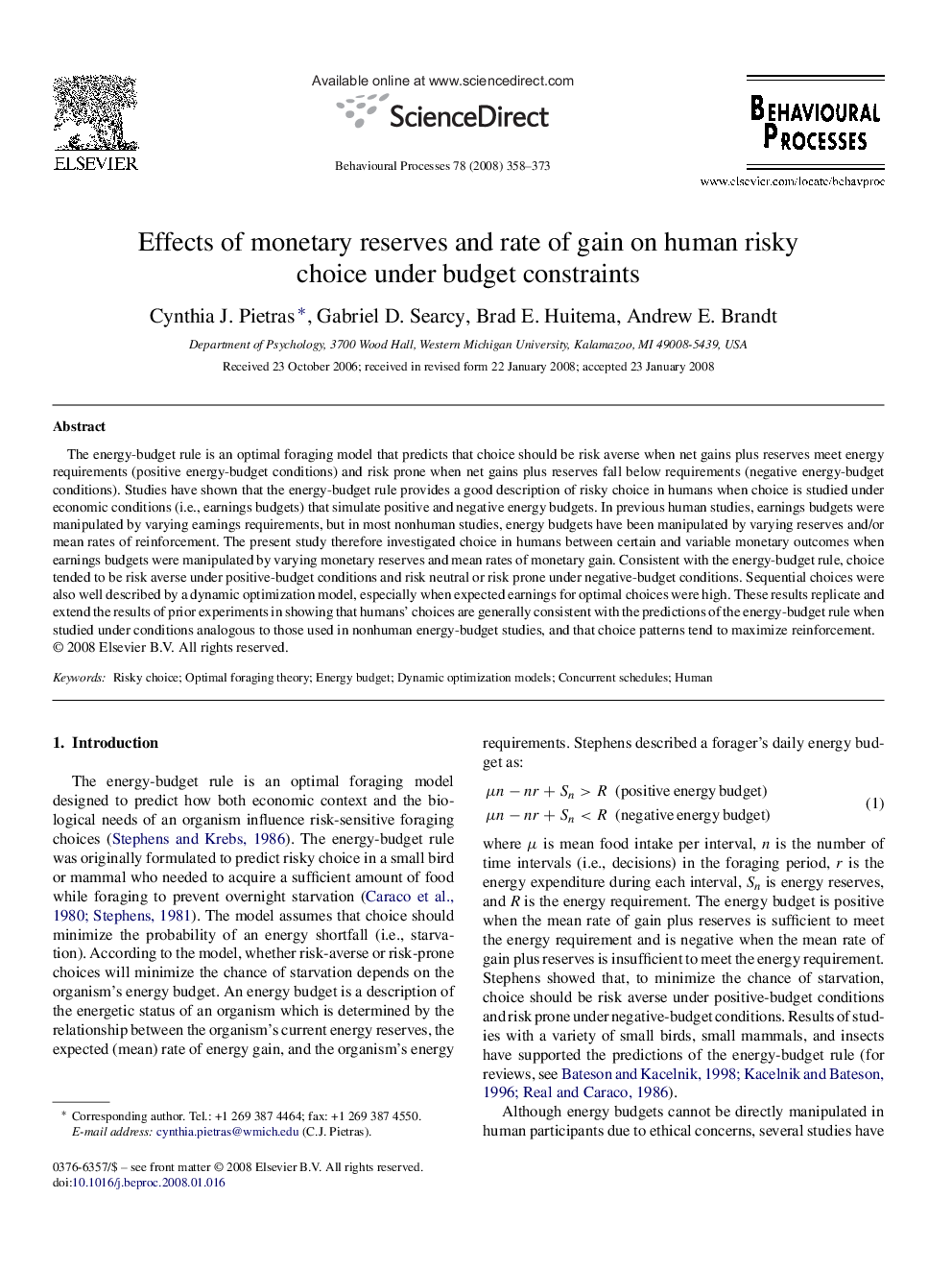| Article ID | Journal | Published Year | Pages | File Type |
|---|---|---|---|---|
| 10971286 | Behavioural Processes | 2008 | 16 Pages |
Abstract
The energy-budget rule is an optimal foraging model that predicts that choice should be risk averse when net gains plus reserves meet energy requirements (positive energy-budget conditions) and risk prone when net gains plus reserves fall below requirements (negative energy-budget conditions). Studies have shown that the energy-budget rule provides a good description of risky choice in humans when choice is studied under economic conditions (i.e., earnings budgets) that simulate positive and negative energy budgets. In previous human studies, earnings budgets were manipulated by varying earnings requirements, but in most nonhuman studies, energy budgets have been manipulated by varying reserves and/or mean rates of reinforcement. The present study therefore investigated choice in humans between certain and variable monetary outcomes when earnings budgets were manipulated by varying monetary reserves and mean rates of monetary gain. Consistent with the energy-budget rule, choice tended to be risk averse under positive-budget conditions and risk neutral or risk prone under negative-budget conditions. Sequential choices were also well described by a dynamic optimization model, especially when expected earnings for optimal choices were high. These results replicate and extend the results of prior experiments in showing that humans' choices are generally consistent with the predictions of the energy-budget rule when studied under conditions analogous to those used in nonhuman energy-budget studies, and that choice patterns tend to maximize reinforcement.
Related Topics
Life Sciences
Agricultural and Biological Sciences
Animal Science and Zoology
Authors
Cynthia J. Pietras, Gabriel D. Searcy, Brad E. Huitema, Andrew E. Brandt,
